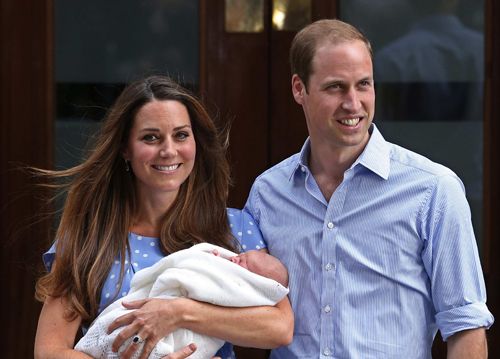Great Britain’s soft power
Or Monarchy’s role in today’s UK, especially in the context of Prince George’s birth
The birth of Prince George to the family of Prince William and Kate Middleton has once again drawn world public attention to the British royal family. An analysis of this and a number of other events in the life of the British monarchy over the past several years (e.g., Prince William’s wedding in April 2011 and Queen Elizabeth II’s diamond jubilee in June 2011) makes it possible to arrive at the following conclusions.
After the 1990s that proved to be a difficult period for the ruling dynasty, when numerous experts believed the divorce of Princess Diana and Prince Charles had dealt the monarchy the heaviest blow in a number of years. The royal Court took a number of measures that allowed it to return public affection. Mostly, it is assumed, because Queen Elizabeth II and her family proved capable of adapting to modern realities in various fields of endeavor. Among these measures are the recent enactment of a law that gives girls equal succession rights and the lifting of the ban on marriages between heirs to the throne and Catholics.
The British royal family is at the peak of popularity with the general public. For most Brits and other subjects of the Commonwealth, monarchy is a unifying factor, the epitome of grand history and numerous traditions; also, another reason to be proud of their country. The marriage of Prince William and a girl from an ordinary family was received positively, for among other things, it signified the further narrowing of the gap between the royal family and the people, and the birth of a boy as heir to the throne was greeted by the Brits in the street with an outburst of affection for the House of Windsor. As media put it, the ordinary Brits simply wanted a sequel to a beautiful fairy tale.
Monarchy means more than emotions to the Great Britain. Expert forecasts read that this year it will add 2.3 billion dollars to the national budget, mostly owing to tourism and sales of souvenirs. The media hype about the birth of Prince George is expected to bring the national treasury some 0.75 billion dollars.
Foreign politics is probably the main aspect of official London’s stand. Queen Elizabeth II is the head of not only the United Kingdom, but also 15 countries of the British Commonwealth. She also heads the Commonwealth of Nations, an intergovernmental organization of 53 member states that were mostly territories of the British Empire and which now recognize the British monarch as a symbol of free association. Her duty outside the UK can be regarded as purely formal and ceremonial, yet the very existence of this historical connection in most cases helps develop bilateral relations with Great Britain these days. It is also true that certain countries, including Canada, Australia, and New Zealand have of late been actively discussing the possibility of transfer to the republican order. The proponents regard the [formal] subordination of their countries to the British Crown as anachronistic. In fact, Prince William’s visits to these countries in 2010-12 were meant to boost pro-royal moods there; ditto his trip, together with wife and son, to Australia and New Zealand in 2014.
Apart from the traditional factors, Great Britain’s soft power is one of the determinants of its place in the international arena. In 2012, The Monocle for the first time placed the UK at the top of its annual “Global Soft Power” survey. It is safe to assume that Great Britain, owing to the cross-border impact of its media, rich history, dozens of world-known political and cultural figures, scientists, athletes, etc., will remain at the center of world attention. Also, the British Royal House brand remains the phenomenon that makes the United Kingdom a particularly unique and attractive monarchy in Europe and the rest of the world. Graphic proof of this is the worldwide coverage of the royal wedding. Various estimates place the television audiences between two and two and a half billion viewers. The birth of Prince George and the diamond jubilee were also major global media events.
Despite the limited and symbolic nature of its functions, the British monarchy is very important for the United Kingdom, in both domestic and foreign political context. Consequently, official London is sure to make every effort to preserve the institution of the Crown and spread its positive influence within and without the country. Members of the royal family will most likely continue to demonstrate preparedness for changes as required by the times. The birth of Prince George, the third in line of succession, provides the prerequisites for the continuity of royal power.
Выпуск газеты №:
№44, (2013)Section
Topic of the Day





